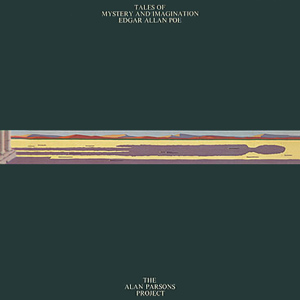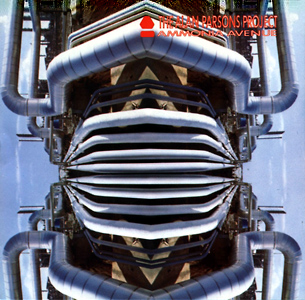
The Alan Parsons Project were a British rock band active between 1975 and 1990, whose core membership consisted of producer, audio engineer, musician and composer Alan Parsons, and singer, songwriter and pianist Eric Woolfson. They shared writing credits on almost all of their songs, with Parsons producing or co-producing all of the recordings, while being accompanied by various session musicians, some relatively consistent.
Descriptive notation is a chess notation system based on abbreviated natural language. Its distinctive features are that it refers to files by the piece that occupies the back rank square in the starting position and that it describes each square two ways depending on whether it is from White or Black's point of view. It was common in English, Spanish and French chess literature until about 1980. In most other languages, the more concise algebraic notation was in use. Since 1981, FIDE no longer recognizes descriptive notation for the purposes of dispute resolution, and algebraic notation is now the accepted international standard.

Tales of Mystery and Imagination (Edgar Allan Poe) is the debut studio album by British rock band the Alan Parsons Project. It was released on 25 June 1976 in the United Kingdom and Ireland by Charisma Records and 20th Century Records in the rest of the world. The lyrical and musical themes of the album, which are retellings of horror stories and poetry by Edgar Allan Poe, attracted a cult audience. The title of the album is taken from the title of a collection of Poe's macabre stories of the same name.

Ammonia Avenue is the seventh studio album by the British progressive rock band the Alan Parsons Project, released in February 1984 by Arista Records. The Phil Spector-influenced "Don't Answer Me" was the album's lead single, and reached the Top 15 on the US Billboard Hot 100 and Mainstream Rock Tracks charts, as well as the fourth position on the Adult Contemporary chart. The single also reached the Top 20 in several countries and represents the last big hit for the Alan Parsons Project. "Prime Time" was a follow-up release that fared well in the Top 40, reaching No. 34. "You Don't Believe" was the first single in November 1983, reaching #54 on the Billboard Hot 100 and "Since the Last Goodbye" was a minor hit.

Eric Norman Woolfson was a Scottish songwriter, lyricist, vocalist, executive producer, pianist, and co-creator of the band the Alan Parsons Project, who sold over 50 million albums worldwide. Woolfson also pursued a career in musical theatre.

I Robot is the second studio album by British rock band the Alan Parsons Project, released on 8 July 1977 by Arista Records. The album draws conceptually on author Isaac Asimov's science fiction Robot stories, exploring philosophical themes regarding artificial intelligence.

Eye in the Sky is the sixth studio album by British rock band the Alan Parsons Project, released in May 1982 by Arista Records. At the 25th Annual Grammy Awards in 1983, Eye in the Sky was nominated for the Grammy Award for Best Engineered Album. In 2019, the album won the Grammy Award for Best Immersive Audio Album at the 61st Annual Grammy Awards.

Pyramid is the third album by progressive rock band The Alan Parsons Project, released in May 1978. It is a concept album centred on the pyramids of Giza. At the time the album was conceived, interest in pyramid power and Tutankhamun was widespread in the US and the UK. Pyramid was nominated for the 1978 Grammy Award for Best Engineered Album, Non-Classical.

Eve is the fourth studio album by British rock band the Alan Parsons Project, released in September 1979 by Arista Records. The album's focus is on the strength and characteristics of women, and the problems they face in the world of men. It had originally been intended to focus on "great women in history", but evolved into a wider concept. The album name was the same as Eric Woolfson's mother-in-law.

The Turn of a Friendly Card is the fifth studio album by the British progressive rock band the Alan Parsons Project, released in 1980 by Arista Records. The title piece, which appears on side 2 of the LP, is a 16-minute suite broken up into five tracks. The Turn of a Friendly Card spawned the hits "Games People Play" and "Time", the latter of which was Eric Woolfson's first lead vocal appearance. An edited version of the title piece combining the opening and ending parts of the suite was also released as a single along with an official video.

Stereotomy is the ninth studio album by the Alan Parsons Project, released in 1985.

Vulture Culture is the eighth studio album by the Alan Parsons Project, released in 1985 via the Arista label.

Gaudi is the tenth album by The Alan Parsons Project, released in 1987. Gaudi refers to Antoni Gaudí, the Catalan Spanish architect, and the opening track references what is probably Gaudí's best known building, the Sagrada Família.

Alan Parsons is an English audio engineer, songwriter, musician and record producer.

Freudiana is a rock opera by Eric Woolfson. It was to be the 11th album by the Alan Parsons Project, but during its development, Woolfson had creative differences with Alan Parsons. The production, released in 1990, utilizes the Project's personnel as well as many guest vocalists.
"(The System of) Dr. Tarr and Professor Fether" is a 1976 single by the Alan Parsons Project. It first appeared on their debut album, Tales of Mystery and Imagination: Edgar Allan Poe. The single reached number 37 on the US Billboard Hot 100 and number 62 in Canada.
"The Raven" is the first song by the Alan Parsons Project, recorded in April 1976 at Mama Jo's Studio, North Hollywood, Los Angeles. It is the second track on their debut album, Tales of Mystery and Imagination, which is a tribute to author and poet Edgar Allan Poe. Though the song is based on Poe's poem of the same name, and is almost a verbatim recital of the lyrics of the poem, Poe is not given song writing credit. It is credited to Alan Parsons and Eric Woolfson.

The Best of the Alan Parsons Project is a 1983 greatest hits compilation by the Alan Parsons Project. In addition, it contained a new song "You Don't Believe", which would be included on the next Project album, Ammonia Avenue. In 1986, it had become the first album of the group to be released in the Soviet Union, although the song "Psychobabble" was removed from it. No songs from Tales of Mystery and Imagination were included, presumably because that album had not been released through Arista.

The Definitive Collection is a 1997 2 CD compilation by The Alan Parsons Project, released through Arista Records. The American version begins with two songs from the Alan Parsons Project's first album, Tales of Mystery and Imagination, which was released on 20th Century Fox Records in the U.S. and Charisma Records in the U.K., prior to the band signing to Arista. The European version of the compilation does not include them. Both versions close with two tracks from Alan Parsons' first solo album, Try Anything Once.

Eric Woolfson sings The Alan Parsons Project That Never Was is an album by the progressive rock musician Eric Woolfson, co-creator with Alan Parsons of The Alan Parsons Project, as well as main songwriter and manager of the band. Released in 2009, this was Woolfson's final album before he died of cancer in December of that year. The album includes songs that remained unreleased since the Project time for various reasons; however, as Woolfson himself remarks in the booklet, Parsons' dislike for some of Woolfson's compositions would have often caused them to be excluded from a Project album in its very early stages - such as, for example, "Steal Your Heart Away", an "unashamedly commercial" song with a conventionally sentimental lyric, which Parsons, in Woolfson's words, would have absolutely detested. "Somewhere in the Audience" and "Immortal" are slightly re-arranged and re-recorded versions of two of Woolfson's demos for his 2003 musical about Edgar Allan Poe; the final versions of these songs, sung by the musical's protagonist Steve Balsamo, are featured on the album Poe: More Tales of Mystery and Imagination. "Train to Wuxi" was the original version of "Train to Freedom", which is also included in the Poe musical and features Woolfson's one and only guitar solo.


















